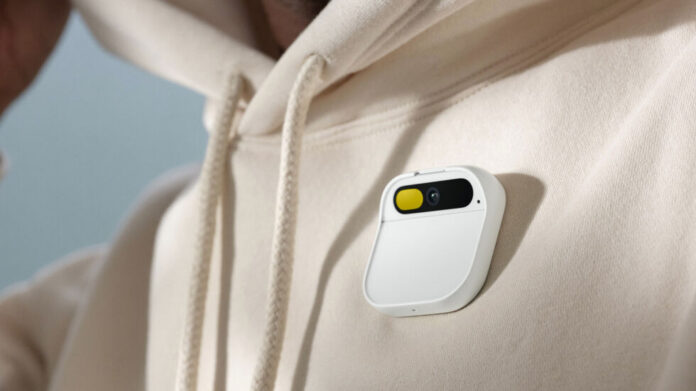-

The Humane AI Pin. It has a magnetic back, so it sticks to your clothing like a name tag. [credit: Humane ]
Not since Magic Leap has a "next-generation" hardware company been so hyped while showing so little. Everyone in the tech world has been freaking out about this new pocket protector thing that wants to "replace your smartphone." It's called the "Humane AI Pin." As far as we can tell, it's a $700 screenless voice assistant box and, like all smartphone-ish devices released in the last 10 years, it has some AI in it. It's as if Google Glass had a baby with a pager from the 1990s.
It's a voice assistant box, so that means it has a microphone and speaker. There's no hot word, and it's not always listening, so you'll be pressing a button to speak to it, and you'll get a response back. There's also a camera, and because you're expected to mount this on your clothing at chest level via a magnetic back piece, you'll be creepily pointing a camera at everyone the whole time you're using it. It claims to be "screenless," but it has a pretty cool 720p laser projection system that seems to function as a fine monochrome screen that projects a smartwatch-like UI onto your hand. It shows some super basic UI elements, like a circular media player or a scrolling wall of text. A few hand gestures, like tapping your fingers together, will let you interact with it.
Despite claiming to be able to replace a smartphone, the Humane AI Pin is going back to the Dark Ages and not supporting any apps. We've seen so many devices live and die by their app ecosystems, and the matter-of-fact quote from the presentation was, "We don't do apps." You'll be locked into whatever features and services Humane has built into the Android-based "Cosmos" OS. So if you want to play music, it needs to be from Tidal, a service with 0–2 percent market share, because that's who the Humane people have partnered with. It's unclear if there is any other third-party functionality other than that. Humane's "Cosmos" page shows logos for Slack and then logos from Microsoft and Google, which could mean anything.
Read 21 remaining paragraphs | Comments
Ars Technica - All contentContinue reading/original-link]




